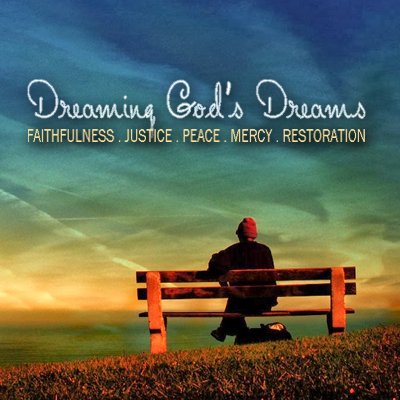Ten Thousand Charms
Dreaming God’s Dreams: Part 2
Sunday, October 30, 2022
Hosea 1:2, 2:14-23; James 4:4-10
Therefore, I will charm her, and bring her into the desert, and speak tenderly to her heart. From there I will give her vineyards, and make the Achor Valley a door of hope. There she will respond to me as in the days of her youth, like the time when she came out of the land of Egypt.
Hosea 2:14-15 (CEB)
Listen to this week’s sermon here:
____________________
The movie "Fireproof" with Kirk Cameron tells the story of a couple whose marriage is falling apart. The divorce papers are on the table, but he is not willing to give up. The advice he follows comes from a journal called "The Love Dare", which is a valuable tool for strengthening marriages at any stage.
While I would recommend this movie and book to any couple, the image of Kirk Cameron's character working through the 40 daily challenges of the "Love Dare" call to mind the images of God's faithful covenant love.
In the book of Hosea, the prophet is called to marry a prostitute. God uses this sign act as a prophetic message to the people. They have prostituted themselves with other gods. In Hosea 2:8, God reminds us that she did not know that her husband had given her everything that she used for Baal. This is not to endorse the ancient marriage culture of male dominance and female subservience as normative. The point for us is not that she was exclusively dependent on her husband or that she should accept his dominance over her. Rather it is to show that unlike many earthly husbands, God does not merely shout or fight or even beat his lover into submission.
Yes, there are consequences in Gomer's life, and in the life of Israel. But even when she is unfaithful, God proves his faithfulness.
In 2:14, the Lord says he will bring her out into the desert, away from all of the allures of the world. If we’re not careful, we may interpret this as a form of abusive isolation. We don't take to kindly to a spouse telling us who we can or can't associate with or limiting our freedom to go where we choose. We must remember that God was not endorsing this culture but rather using the way things were to teach a much more important lesson.
Yes, he brought her out to the desert. Yes, he cut her off from the world of her lovers, as any husband in Old Testament times would have had the right to do. But the key difference is what God does during her exile. He does not abuse her. He does not shame her. He does not condemn her.
Instead, God courts her, as if they were a couple falling in love for the first time.
"I wills peak tenderly to her heart. From there I will give her vineyards and make the Achor Valley a door of hope. There she will respond to me as in the days of her youth, like the time when she came out of the land of Egypt."
I was talking recently with a recovering addict and she said that while the desire for the drug never really goes away, she has come to a place where her desire for God is greater.
That is the key to faithfulness.
The allure of the world is great. As Todd Agnew puts it, "If you wanted me to die to myself, why'd you make me fall so deeply in love with life?" (listen below)
It is said that the heart wants what the heart wants. God created us with the capacity for great passion, desire, and love, but often those gifts are misdirected.
Faithfulness isn't about rejecting all that is good and lovely in the world. It is about responding to God's unending passion, desire and love for us. It's about "seeking first the Kingdom of God and his righteousness" (Matthew 6:33). It's about desiring God more than anything Egypt or Baal or anyone or anything else could ever offer.
As the hymn writer says
[Let us] arise and go to Jesus
He will embrace us in his arms
And in the arms of our dear savior
Oh, there are ten thousand charms... ten thousand charms
Spend some time in your Saviors arms as you worship with the songs below.
Let us remain faithful to the one who is always faithful to us.



